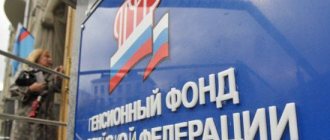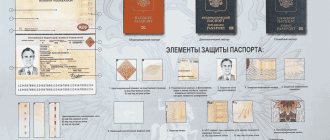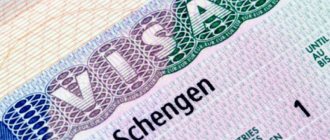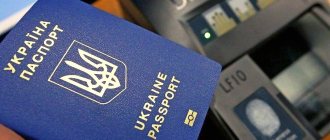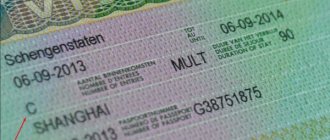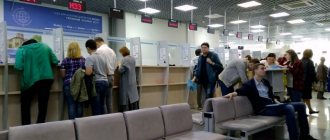Russian pension abroad
A pension is the result of what a person has earned over the years of his working life. And if a person has Russian citizenship or a residence permit, a certain insurance period, a pension coefficient not lower than a certain level, and he has reached retirement age, such a person has the right to receive an old-age insurance pension.
As you can see, among the requirements there is no mandatory residence in Russia. This is true, and more than 330 thousand Russian pensioners living in 129 countries of the world
- confirmation of this. Moreover, several years ago the authorities recognized that even registration (that is, registration at the place of residence) is not necessary to assign a pension. A pension is what a person has earned, so he receives it regardless of his location.
Traveling abroad does not deprive a person of the right to receive a pension
, but various technical problems cannot be ruled out (such as unfavorable currency conversion rates, the inability to withdraw money from the Mir card abroad, etc.). Therefore, it is important to know the rules by which pensioners abroad receive a Russian pension.
People can live in another country for various reasons. This, for example, is a more favorable climate, low prices, living with a family who previously left for permanent residence in another country. By the way, NTV recently talked about several pensioners from Russia who settled well in Thailand, Egypt and other hot countries on 15-20 thousand rubles a month.
But even if they leave for permanent residence, Russians abroad for the first time receive a maximum of a residence permit - which does not always give the right to a pension. And in order to live for several years before receiving a passport, you cannot do without a Russian pension
.
You can’t just pick up and leave without warning anyone. The fact is that pension legislation establishes several grounds for suspending payments
pensions. Among other things, these are:
- failure to receive a pension for 6 consecutive months;
- those receiving a disability pension - in case of failure to appear for re-examination on time;
- students over 18 years of age receiving a survivor's pension - failure to provide proof of study (including abroad);
- receipt of documents on the pensioner’s departure for permanent residence abroad, if he has not previously submitted a corresponding application.
Accordingly, if a pensioner receives a pension, for example, via mail or on a Mir card, he will not be able to receive it abroad, and after six months the payment will stop
.
With recipients of a disability pension, it is even more complicated - they actually receive a disability group indefinitely upon reaching retirement age, and before that it will be problematic to leave for a long time.
Therefore, any pensioner must ensure in advance that the payment of his pension does not stop when he is abroad.
Pension amount
The amount of the pension depends on the period of payment of pension contributions, and the salary received by the late migrant in the country of origin in a certain period is adjusted to the average salary in Germany on the basis of relevant tables.
When paying pension contributions after 1950, the table values depend on the qualifications of the worker and the sector of the economy in which he was employed, which makes it possible to most accurately approximate the size of foreign wages to German values.
According to the FRG (Fremdrentengesetz) amendment of 1996, the pensions of late migrants who moved to Germany after May 6, 1996 are generally calculated differently from those for Germans who have always resided in Germany. In the fall of 2010, the Federal Constitutional Court of Germany confirmed this amendment to the FRG as not contradicting the German Constitution.
Thus, late migrants who moved to Germany for permanent residence after 05/06/1996 can receive a maximum of 25 credits per recipient (as of July 1, 2014, 25 credits represent a monthly pension of 715.25 € in the old days or 659.75 € in the new federal states). If both spouses are entitled to recognition of a foreign pension as late settlers, they can receive a total of no more than 50 credits (as of July 1, 2014 - 1,144.40 € per month in the old federal states and 1,055.60 € in the new federal states).
The pension received in the country of origin is taken into account in Germany - its amount is deducted in full from the amount of the pension calculated in Germany for the same period of payment of pension contributions.
Grundsicherung is the minimum allowance
| Family | Euro | rubles |
| One parent raising a child/children | 404 | 28’010.29 |
| Two parents living with children | 325 | 22’463.70 |
| Spouse or 2 adults living together | 364 | 25’236.99 |
Basic guide - everything is simple here
When a person reaches retirement age, or is no longer able to work, he is entitled to receive a pension - a basic benefit, or Grundsicherung.
Rest assured, you will not be left without government help! People are taken care of here... Even German pensioners sometimes turn to the social service to ask for additional assistance - payment for an apartment, heating...
If your monthly income is less than 789 euros, then you can also apply for a basic allowance. Its amount is not so large, only 324 to 404 euros. This is only a “pure” benefit. Money is added to it to pay for housing and heating. Funds may be issued for repairs, for example. You can contact the social service for additional funds, but you will need to justify it.
Repairs, housing payments, etc. are paid upon actual expenses - all receipts must be kept. By the way, have you already read the article about taxes?
Average pension in Germany in 2021
There may still be changes in 2021, so it makes sense to make a calculation based on the results of last year.
When you reach retirement age, the state pays about 835 euros
or more than 70,000 rubles.
This is a very high figure when compared with Russian pensions. They rarely exceed 20,000 rubles.
At the same time, in the territory of the former GDR the amount of pension payments is slightly higher. On average, 20 euros.
Important.
In Germany, taxes are taken from pensions. That is, citizens receive approximately 200 euros less than indicated above. But this is still more than Russian pensions.
But do not forget that the standard of living in countries is very different. Yes, Germans can often afford to travel when they stop working and retire. But they are forced to pay taxes on their income, and they also do not have free treatment. If serious health problems arise, almost all of this money is spent on doctors’ services and on the purchase of medicines.
In Russia, a lot of money is spent on medicine. That is, under the compulsory medical insurance program you can get fairly high-quality services without paying anything. The same applies to a number of other benefits that exist in Russia.
Plus, we shouldn’t forget about the cost of utilities and food prices, which are also higher in Germany than in Russia.
Thus, if we compare all factors, we can say that Russian pensioners live approximately the same as German ones. But not all Russians take advantage of the preferences granted to them.
What to do if you temporarily leave Russia
You can go to Turkey for a week in winter very inexpensively - so much so that sometimes even pensioners can afford it. And in the case of such a short trip, there is no need to worry about the pension: if a person receives it with the postman, he will receive the money at the post office when he returns to Russia, and he can withdraw it from the card at any time (and if it is a Visa or MasterCard, then and directly abroad).
The main thing here is to avoid a 6-month delay in receiving your pension.
and more, otherwise the law allows the Pension Fund to suspend pension payments.
If this happens, you need to go to the Pension Fund and apply for renewal of payments. The pension for the period of suspension will not go anywhere and will be paid to the pensioner in full. By the way, you can also submit such an application through the State Services portal, which is actually available all over the world.
However, this is not all the problems. Pensioners who are accustomed to living in another country for a long time (for example, six months at a time with their family and at home) can issue a power of attorney to receive a pension so that another person receives it - and, for example, transfers it to a pension recipient abroad.
The pension fund will consider that the pensioner is receiving a pension, but with one caveat: at least once a year such a person must appear at the Pension Fund or personally receive a pension
. Of course, it is much easier to issue a payment to a bank card and transfer it to a trusted person, but this is too difficult for older people.
Accordingly, if a power of attorney is issued
to another person, then the pension recipient will not be able to continuously stay abroad for more than a year - he must come and “check in” in Russia at least once.
Unit-linked policy
Unit-linked is a method of investing when the investment occurs through a life insurance policy opened with a foreign insurance company. Unit-linked should not be confused with savings or investment life insurance, which are sold by Russian insurance companies. These are completely different things. Unit-linked is offered only by foreign companies.
At the moment, four insurance companies are working with Russians: RL 360 (Isle of Man), Investors Trust (Cayman Islands), Hansard (Isle of Man), Custodian Life (Bermuda). Almost all companies have two types of products: savings programs and programs with a large lump sum contribution. The program can be opened in different currencies: US dollar, euro, British pound and others.
As part of the savings program, the client takes out a life insurance policy for a certain period (5-25 years) and regularly makes contributions once a month/quarter/year. The minimum contribution threshold is for Investors Trust, it is $100 per month. Contributions are regularly debited from a bank card (if the card is in rubles, it is automatically converted into dollars) without commission. You can open a unit-like life policy only through a representative of the insurance company.
For investment, each insurance company offers a choice of a list of mutual funds from large international management companies (JP Morgan, Fidelity, BlackRock, Franklin Templeton, etc.). The client himself chooses where to invest his money - this is a fundamental difference from Russian insurance. More than a hundred funds are available to the client, which invest in various assets around the world. Foreign mutual funds have lower fees than Russian mutual funds, but they are higher compared to foreign ETFs. By the way, Investors Trust is the only company that, in addition to mutual funds, has iShares ETFs in its line, which are not included in the savings programs of other companies.
When registering a policy, the client indicates in which funds and in what proportion the contributions will be invested. Investment of contributions occurs automatically as they are received according to the client’s instructions. If necessary, you can change the funds or their proportions in the portfolio.
Within the program with a one-time contribution, the choice of financial instruments is not limited to a specific list. It's sort of like a brokerage account wrapped up in an insurance policy. You can purchase not only mutual funds, but also exchange-traded instruments: ETFs, stocks, bonds, structured products. The minimum amount to open such a program is from the Custodian Life company, it is $30,000. However, compared to a broker, this investment method has higher fees and some liquidity restrictions.
Depending on the insurance company, the fee structure may vary. But usually the client pays annually a certain percentage of the amount of assets for management and a fixed fee for the policy. In savings programs, part of the commissions is returned in the form of bonuses - additional charges from the insurance company. The longer the policy term and the premium amount, the greater the bonuses. The commission structure is designed in such a way that it is more profitable for the client to invest large sums for a long period.
If the policy is terminated early, the company will charge a fine, the amount of which is equal to the unpaid administrative fees. Contrary to general opinion, savings are not frozen for the entire life of the policy - if necessary, the client can withdraw a certain part of the money from the program without terminating the policy.
The advantage of unit-linked is taxation - income received within the policy is not taxed in Russia. There is no need to file a tax return and pay taxes every year. Tax is paid at a reduced rate only after the policy is closed and all money is withdrawn. However, to receive income, it is not necessary to close the policy and withdraw all the money; this can be done in parts over many years.
Investor capital protection differs depending on the country of registration. For example, in the Isle of Man, protection is provided by a policyholder protection fund, which guarantees a return of up to 90% of capital. In the Cayman Islands, local law requires insurance companies to hold client assets in a segregated portfolio that separates client assets from the insurance company's assets.
In the event of the death of the policy owner, 101% of the accumulated amount is paid to his heirs according to the shares specified in the policy documents. When investing through a broker, the inheritance procedure follows a general procedure and takes much longer. More detailed conditions for investing through a unit-linked policy can be found on the websites of insurance companies or requested from me on this page.
Departure for permanent residence abroad
Departure for permanent residence abroad for Russians differs from temporary departure in that you need to be discharged from your previous place of residence, having received a departure address sheet
. And if for moving within Russia a future new registration address is entered there, then when leaving for permanent residence abroad the name of the new country is entered on the form.
Accordingly, the rules for registering a pension in the event of going abroad for permanent residence are also different - the Pension Fund understands that the pensioner will not return to Russia every six months to confirm his existence.
The Russian pension is paid to those who moved for permanent residence abroad under a number of conditions:
- no earlier than a month before leaving Russia you must submit an application for departure. It is submitted to the Pension Fund in person, through a representative, at the MFC or through State Services;
- The application must be accompanied by certificates
of permanent residence outside Russia. It is issued by the Russian embassy or consulate in the new country of residence; - if we are talking about a survivor's pension
, you will need to attach a certificate of availability or absence of work (from the consulate or directly from a foreign state); - there will be no regional supplements to the pension - since the pensioner does not live in any of the Russian regions;
- if a pensioner works abroad
, his pension will not be indexed. Even if insurance premiums for it do not go to the Russian Pension Fund. As soon as he quits his job, starting next month the pension will again come taking into account indexation; - when moving from one country to another (even without visiting Russia), you need to notify the Pension Fund about this and indicate your new place of residence;
- Once a year you need to confirm that the pensioner is alive. This is done at the Russian embassy or consulate abroad, or at the Pension Fund in Russia.
For retirees living abroad, the last point is the most important. They are required to “check in” every year
at a diplomatic or consular office where an act of personal appearance of a citizen is drawn up.
This can be a problem as the network of consulates in other countries may not be very wide, and each year the pensioner will have to travel far to confirm that he is still alive and eligible to receive a pension.
Another very important issue is the pension payment procedure
, because it is difficult to get it in your hands abroad. There are 2 options:
- if the pension was issued before January 1, 2015
, and it was transferred abroad, transfers can continue, or, at the request of the pensioner, the pension can be paid in Russia; - if the pension was issued after January 1, 2015
, it is paid in rubles to a bank account in Russia.
But a new problem arises: starting from 2021, a pensioner can apply for a bank card exclusively from the national payment system “Mir” to pay a pension. They are almost never accepted abroad (there are several isolated attempts to connect other countries to it, but this is too little), so it is impossible to withdraw money from such a card abroad.
There is a way out; a clause has been added to the legislation according to which a pensioner receiving a Russian pension abroad has the right to issue a card of another system - Visa or MasterCard
.
Types of pensions in Germany
As in any other country, there are several types of pensions in Germany.
They are as follows:
- A simple pension, which is assigned upon reaching retirement age.
- The pension is for citizens who have reached the age of 63 to 65 years, but the most important condition is their year of birth, as well as their work experience, which must be at least 45 years.
- A pension that has increased payments due to the fact that a person has an illness or injury that prevents him from working.
- For females who have reached the age of 60 and were born before 1952.
- For those persons who work in the depths of the mine and who are over 60 years old.
- For those citizens who are widowed, orphaned, or whose relative has died.
State
The country offers several specific types of pensions in Germany of a state nature, which are paid exclusively by the state.
These are the following types:
- By age - in case of reaching retirement age, namely from 65 to 67 years on average.
- For the loss of a breadwinner - in the event of the death or complete absence of the family breadwinner, who was the only source of income for the family.
- For disability – if you have a congenital or acquired disability.
Private pensions
There are dozens of different pension funds in Germany. They are popular among those citizens who have a high income or those who are not officially employed. By the way, in Germany there are very few people who do not work officially.
Citizens enter into an agreement with private pension funds and make contributions every month, the amount of which is determined by the citizens themselves. This pension system in Germany operates on a cumulative basis; Germans receive good additional payments towards their retirement.
All transfers go to a bank account. Essentially, this money can be used any time the account holder wants. But citizens of this state prefer to use their savings in retirement.
§ Pensions for disability, illness
As noted earlier on the page, in the event of incapacity for work (total or partial) due to illness or accident, a person can count on receiving a pension until reaching retirement age (Erwerbsminderungsrenten). A person can start receiving this pension even if he has not paid into pension insurance for the minimum period currently set at 5 years. If an accident occurs at work, already at the very beginning of work (if only one contribution to pension insurance is paid), a person can count on receiving a disability pension. Occupational disease that limits ability to work is also taken into account. If the disability occurs due to a domestic injury or illness, only those who have paid contributions to pension insurance (12 contributions) for at least 1 year can receive a pension.
Before a decision is made to pay a disability pension, it must generally be determined whether restoration to work is possible through medical or vocational rehabilitation. A partial disability pension is paid if a person can work less than 6 hours a day, not only in his specialty, but in any job. This is established on the basis of medical examinations and expert opinions.
For disabled people with a degree (Grad der Behinderung, GdB) of 50% or more in Germany, it is possible to retire at an earlier age. This also requires meeting certain conditions and prerequisites. More details can be found in the brochure, link at the bottom of the page.
Payment of pensions immediately for six months - is it possible?
On the Internet you can find information that when traveling abroad for permanent residence, the Pension Fund can pay a pension for 6 months immediately in advance. This is necessary so that a person is not left without a livelihood in the first months after moving and can settle down.
Information on pension payments for six months
It’s even on the website of the Russian Pension Fund – although it dates back to the first half of 2014.
And indeed, according to Russian government decree No. 510 of July 8, 2002 “On approval of the Regulations on the procedure for paying pensions to citizens who leave (have left) for permanent residence outside the Russian Federation,” such payments were provided for.
A pensioner could receive such a payment at will - the Pension Fund made a payment if the foreign passport contained a note about leaving for permanent residence outside of Russia. Pensions were paid in advance only if a person moved to a country with which Russia did not have an Agreement on the payment of pensions.
However, this decree was repealed on January 1, 2015
(however, the information has not yet been removed from some pages of the Russian Pension Fund).
Now the procedure for paying pensions to Russian citizens outside the country is regulated by Decree of the Government of the Russian Federation of December 17, 2014 N 1386, and there is no mention of paying pensions for six months.
3. Mexico
Fans of the exotic can go even further - to Mexico. This is a real adventure paradise, surprising with the hospitality of the residents of villages lost in the depths of the tropical jungle, the diversity of flora and fauna, the silence of secluded beaches and the noise of megacities, the splendor of architecture and the piquant cuisine.
The average cost of living in Mexico is slightly higher than the Russian pension, 17,570 RUB per person per month, but you can save on food and rent.
For a rented one-room apartment in the center they are asking 16,650 RUB per month, outside the center - 10,800 RUB. The price of 1 liter of milk is 50 RUB, 1 kg of cheese is 300 RUB, chicken fillet is 260 RUB, beef tenderloin is 400 RUB. Oranges and bananas for 45-50 RUB per kilo, vegetables for 40-60 RUB. For lunch in a cafe: about 300 RUB, dinner in a restaurant: 1300 RUB. A movie ticket costs 215 RUB, a fitness subscription costs 1890 RUB, and a transport ticket costs 25 RUB.
- Where to relax without knowing foreign languages: the most suitable countries
- 13 countries of the world ideal for emigration
Is it possible to retire early?
If a person was born between 1947 and 1964, a month is added to 65 years for each calendar year.
The age limit determined for the period until 2029 is 67 years.
However, for some Germans, the 63rd birthday is accompanied by retirement with a full pension. This option is prescribed by law. True, such a pension in Germany requires at least 45 years of work experience.
The early deadline also means that upon reaching retirement age, a person can also earn extra money without paying taxes, but with earnings of no more than 459 euros gross per month.
There are no restrictions on retirement due to health reasons. The amount of earnings of 459 euros for working disabled people is also taxed.
Do immigrants receive pensions?
People planning to move permanently to Germany are interested in the question of whether the right to a pension is retained. The answer is yes. You can receive it both in Russia and in another country. When leaving, the pensioner has the right to an advance in the form of a 6-month payment from the fund, which will need a certificate from the migrant after six months.
This document, received at the Russian consulate, will confirm that the pensioner is alive and lives in Germany. Such certificates must be provided at the beginning of each year.
Most expatriate pensioners are entitled to social benefits from Germany. But if a person also receives a pension from his home country, this amount is deducted.
For lawbreakers who hide income, all German payments are recorded as debt. Therefore, it is necessary to inform the German social authorities about the amount of the monthly pension.
Consular Section of the Russian Embassy in Germany
Behrenstr. 66 10117 Berlin
Tel.: 030 / 226 51 183 Fax: 030 / 226 51 999
Opening hours: Monday - Friday from 9.00 to 13.00 (except for public holidays of the Russian Federation)
Consideration of appeals, applications and complaints from citizens
Consulate General in Leipzig
Turmgutstr. 1, 04155 Leipzig. Consular district: Sachsen, Thüringen.
Consulate General in Frankfurt am Main
Eschenheimer Anlage 33/34, 60318 Frankfurt-am-Main. Consular district: Baden-Württemberg, Hessen.
Consulate General in Hamburg
Am Feenteich 20, 22085 Hamburg. Consular district: Bremen, Hamburg, Niedersachsen, Schleswig-Holstein.
Consulate General in Bonn
Waldstr. 42, 53177 Bonn. Consular district: Nordrhein-Westfalen, Rheinland-Pfalz, Saarland.
Consulate General in Munich
Maria-Theresia-Straße 17, 81675 München. Consular district: Bayern.
Consular Section of the Russian Embassy in Germany
Behrenstr. 66 10117 Berlin
Tel.: 030 / 226 51 183 Fax: 030 / 226 51 999
§ How to get a pension in Germany: applying for a pension
Receiving any type of pension in Germany is possible only after submitting an application for a pension (Rentenantrag). This application can be written without a specific form, and also, to speed up its consideration, using the special forms provided. These forms are available on the Deutsche Rentenversicherung Antrag auf Versichertenrente page
The application for a pension must be accompanied by documents that were not taken into account by Pension Insurance, for example: confirmation of completion of education, time of receipt of unemployment benefits, birth certificates of children and others.
In addition, when submitting your application, you will be required to provide the following information:
- Tax identification number (Steueridentifikationsnummer)
- Bank account number and bank code (IBAN and BIC)
- Passport or International Passport (Personalausweis or Reisepass)
- Health insurance card
It is recommended to submit an application for a pension three months before retirement age. Late application for a pension may result in a later start to receiving your pension.
Documentation
In Germany there is no concept of automatic retirement; you must submit documents to receive assistance:
- an application written by hand or on a special form (in the latter case the review process will be accelerated);
- tax identification number; bank account details; passport or foreign passport;
- health insurance card;
- children's birth certificate, unemployment certificate and certificate (in some cases).
In order to receive Grundsicherung in the future, a person must contact the Sozialamt. This is the German Social Security Administration, where they will provide him with a package of necessary documents.
But, in addition to this payment, the state will additionally provide financial assistance to pay for utilities, treatment, medicines and other vital needs.

